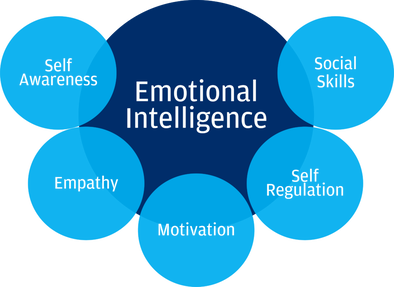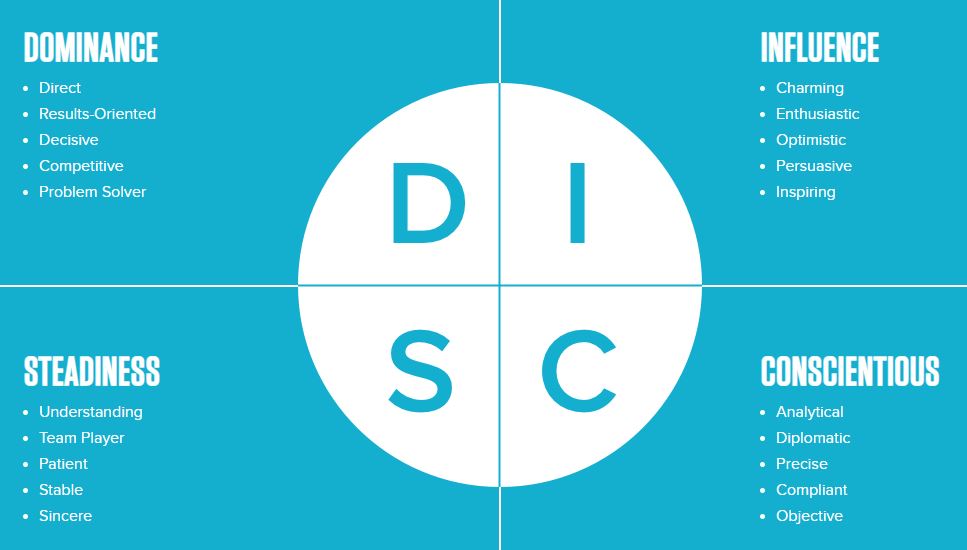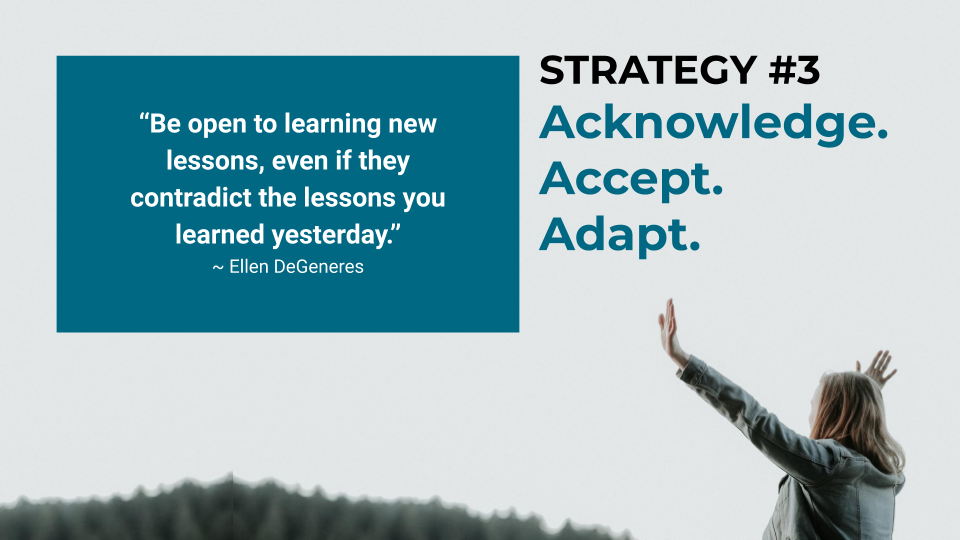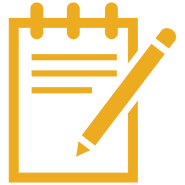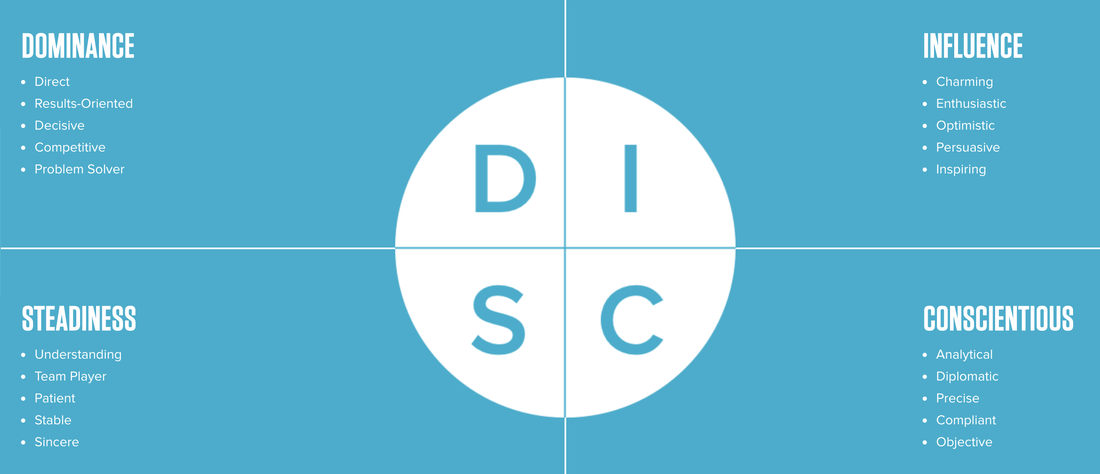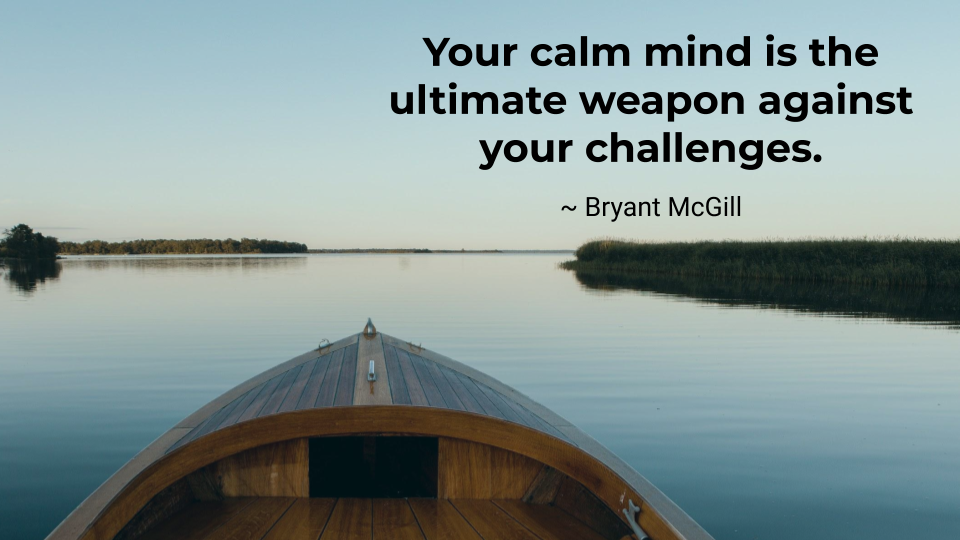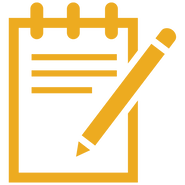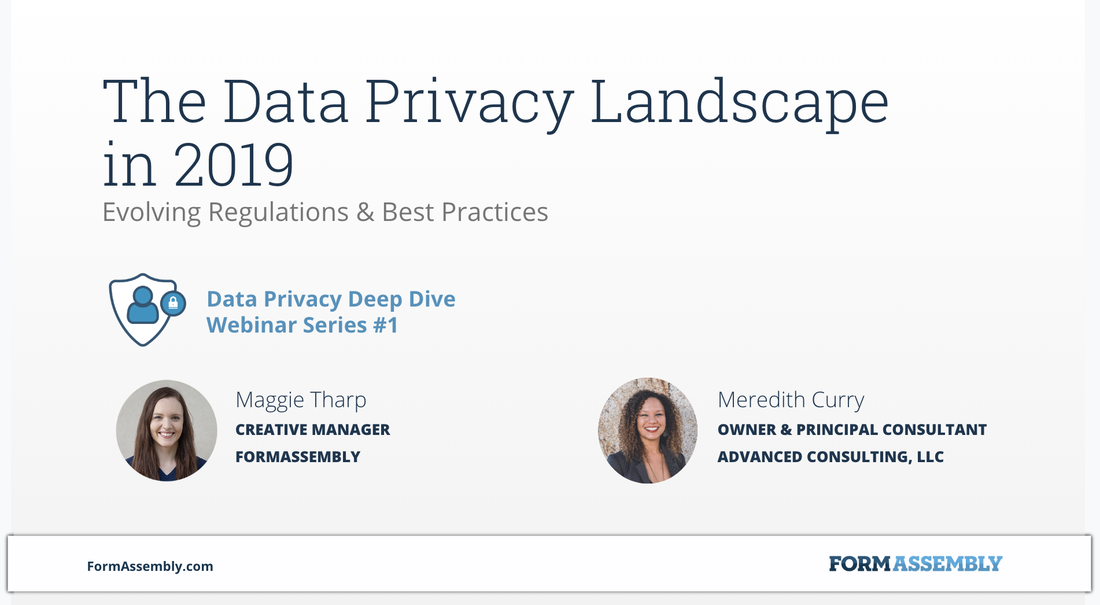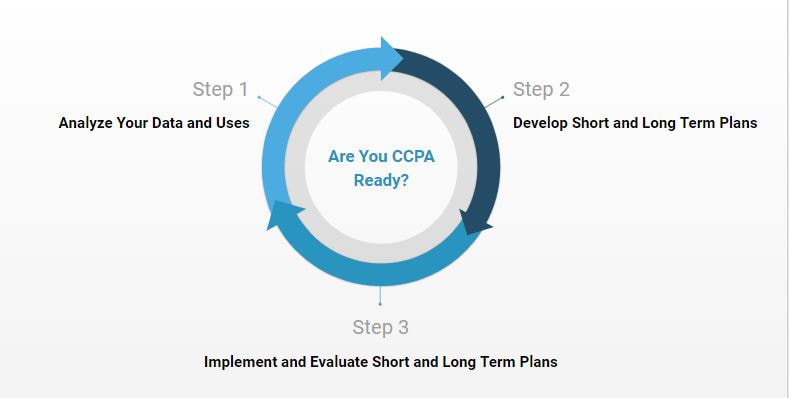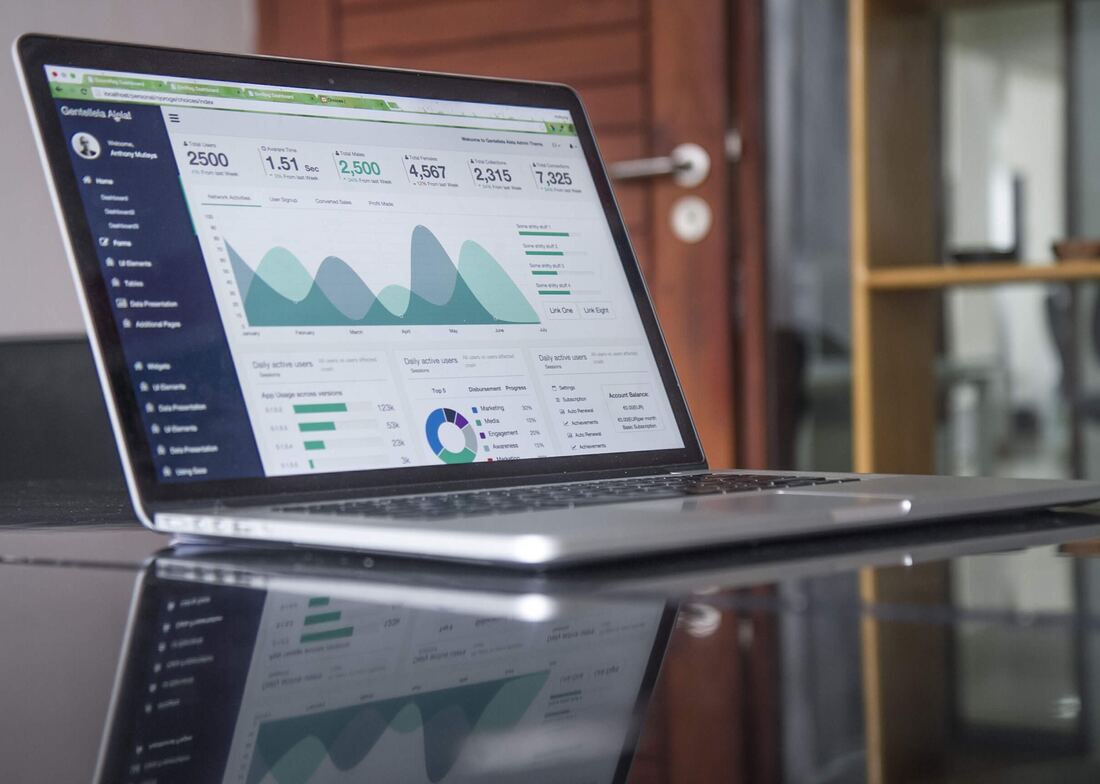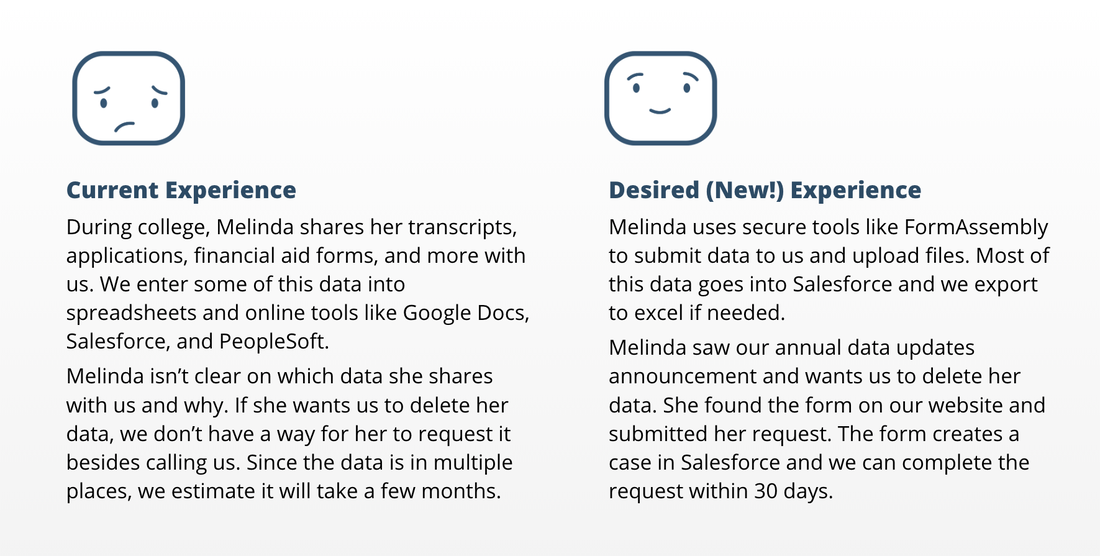ADVANCED ON PURPOSEAn educational blog with purposeful content. We welcome open and polite dialogue, and expect any comments you leave to be respectful. Thanks! Archives
May 2023
Categories
All
|
Back to Blog
Defining Your Strengths as a Leader Series: #2 Defining Your Emotional Intelligence Strengths11/4/2019 3 MIN READ I found a recommendation for “Emotional Intelligence 2” by Travis Bradberry & Jean Greaves. With the book came a new and enhanced online edition of “the world’s most popular emotional intelligence test,” The Emotional Intelligence Appraisal®. The Emotional Intelligence Appraisal® provides you with a complete picture of your emotional intelligence. This includes an understanding of:
This appraisal will ask you specific questions about your behavior. How you answer these questions is for your eyes only. A true reflection of your emotional intelligence skills depends on your willingness to accurately rate yourself. This requires a lot of thought into how you are in many situations, not just the ones you handle well. When you read each question, create a clear picture in your mind of how you are in different situations, then answer honestly how often you demonstrate the behavior in each question. Define Your Emotional Intelligence Strengths Activity Read about the Emotional Intelligence Appraisal - Me Edition. Consider if you would like to take this assessment (it costs less for the hardcover book than the online assessment!). If you decide to take it, put it on your calendar by blocking 2 hours and set a reminder for a few days before so that you do not reschedule it.
What if you decide not to take it? Reflect on a colleague or loved one in your life who could benefit from the activity and tell them about it! The accompanying report recommends that I begin practicing on one specific area, Social Awareness, and offers three strategies to nurture my skills in this area:
My Take-aways on the Emotional Intelligence Appraisal
Now that you’ve reviewed one assessment, take a look at Assessment #3 the StrengthsFinder by Gallup (stay tuned!). Related articles
About Author: Meredith "Mer" CurryMer has always had a passion for education and helping historically underrepresented groups achieve access and success to higher opportunities. She has consulted nonprofits, educational institutions, and businesses in addition to her volunteerism and mentorship of students.
Learn more about Mer at www.meredithcurry.com.
1 Comment
Read More
Back to Blog
4 MIN READ This article is the 2nd in a series. Read the introduction article "Defining Your Strengths as a Leader." I took DiSC through the Tony Robbins website thanks to social justice comrade and career coach Anthony Le’s recommendation. I’ve participated in a Tony Robbins seminar as a teenager, so to take something as an adult almost 20 years later was exciting! DiSC is an observable “needs-motivated” instrument based on the idea that emotions and behaviors are neither “good” nor “bad.” Rather, behaviors reveal the needs that motivate that behavior. Therefore, once we can accurately observe one’s actions, it is easier to “read” and anticipate their likely motivators and needs. DiSC provides your ADAPTED style and NATURAL style, represented as graphs and word sketches. As an example, for People, the words that indicate my needs, fears, and what’s observable are:
Define Your Strengths with DiSC Activity
What if you decide not to take it? Reflect on a colleague or loved one in your life who could benefit from the activity and tell them about it! My Behavior Style is Assessor. Key behavioral insights that stand out to me that I will need to keep in mind to strengthen my relationships are:
The insights I get to take home with me and contemplate as I move forward are lists of “Help Them Tos” adapted for different situations such as At Work, In Social Settings, and In Learning Environments. Lastly, you get a summary of your motivation which tags seven (7) Motivators as Very Low to Very High. My breakdown was:
Knowing that Altruistic motivation is my highest, key universal assets that stand out to me that I will need to keep in mind are:
My Take-aways on DiSC
Now that you’ve reviewed one assessment, take a look at Assessment #2 on Emotional Intelligence. Related articles
About Author: Meredith "Mer" CurryMer has always had a passion for education and helping historically underrepresented groups achieve access and success to higher opportunities. She has consulted nonprofits, educational institutions, and businesses in addition to her volunteerism and mentorship of students.
Learn more about Mer at www.meredithcurry.com.
Back to Blog
Defining Your Strengths as a Leader10/28/2019 4 MIN READ  This article is the 1st in a series on "Breaking Knowledge Barriers". This article is the 1st in a series on "Defining Your Strengths as a Leader" I have read my fair share of what some might term “self-help” books. I like to think of them as “self-awaken” books. The “help” part in “self-help” alludes to something being broken that needs fixing. What I appreciate about the books I’ve read since I was little, as well as today, is that self-awaken books point to the strengths, potential, and inner wisdom deep inside of us, already alive and ready, yet often untapped and tucked away hidden from sight. This wisdom manifests as skills and intuition, and I’m keen on developing my ability to tap this wisdom. Self-evaluation is critical for me as a leader, as a manager of teams and projects, and as a woman of color. The Center for Creative Leadership reminds us in their report 7 Emerging Trends for Transformative Leaders that some managers may struggle with interpersonal relationships, affecting their ability to build and lead teams or adapt to change, which can lead to career derailment. To avoid this, “organizations must design programs that develop [managers’] self-awareness, political savviness, communication skills, and ability to influence others...skills that are essential to effectively heading a team.”
As a professional, whether you are an employee of a company or an entrepreneur, understanding your strengths and skill sets is key to building the confidence, resourcefulness, and grit to adapt to any situation. As human beings who have way more going on than just our jobs, you can bet that your personal, educational, emotional, societal, cultural, economical, and religious identities are often at play when you negotiate professional situations. Most of us do not know how these identities manifest themselves in our decisions, risk tolerance, and self-reliance. Most of us have comrades and loved ones we can turn to for advice and feedback, but our hearing is often screening and interpreting with the bias of that relationship and all of its power dynamics. So why take a personality assessment? Because we often don’t know the questions to ask. And even if we did, would we really answer honestly, free of unconscious bias, shame, guilt, regret, or fear? Define Your Strengths as a Leader Activity Take out a pad of post-its, ideally in two different colors (e.g. green and yellow). Find a blank wall or space where you can lay out two sets of post-its and set aside a total of one hour.
We know from the Council of National Psychological Associations for the Advancement of Ethnic Minority Interests “Test bias is a primary issue of selecting and using testing and assessment instruments with racial/ethnic minority groups. Past research has shown that tests can produce misleading results with culturally different groups in terms of slope and intercept (or unfairness) bias.” Thus, if you are a person of color, you will need an assessment that will address and consider this intersection of your identity, as well as many others, if you are to feel good about doing anything at all with the results. I’d like to give you a review of a few assessments because, 1) I have taken them in more than one sitting or format, and 2) I have heard from and worked with others who have taken one or a combination of assessments as part of developing themselves professionally at work. I have written a separate blog post for each assessment in this "Defining Your Strengths as a Leader" series. Click here to go to Assessment #1 on DiSC. Related articles
About Author: Meredith "Mer" CurryMer has always had a passion for education and helping historically underrepresented groups achieve access and success to higher opportunities. She has consulted nonprofits, educational institutions, and businesses in addition to her volunteerism and mentorship of students.
Learn more about Mer at www.meredithcurry.com.
Back to Blog
3 MIN 30 SEC READ This article is the 4th in a series. Read the introduction article: "Breaking Knowledge Barriers Series: Womxn of Color in the Workplace." How many of us are still making decisions today because of something that happened a month ago? A failure a year ago? A mistake or misjudgment a relationship ago? Instead, I recommend, “Be open to learning new lessons, even if they contradict the lessons you learned yesterday.” Our intersections, our identities, are chock full of lessons we learned yesterday that we are still holding onto. They might be holding us back and we may mistakenly think they’re pushing us forward. ACKNOWLEDGE who you are, how your identities intersect and play out in your everyday. How your heritage/history, education, geography, and income all impact the access you have to the knowledge you seek today. You acknowledge that the path behind you and in front of you is rife with challenges and misjudgment and misunderstanding. So who are YOU today, and what strengths and skills do you have in your toolbox to move forward from this moment?
That is to ask yourself what are you GOOD at, what are your strengths, and how does that play out in your life. Conversely, what does it look like when you are not applying those strengths in your life, and how do they manifest as fears or you getting in your own way or your unhappiness? ADAPT by starting from a place of strength in the knowledge of who you are and gratitude for all that you have ACHIEVED to get to this moment, rather than shame or regret. There’s a TED Talk on the 5 Top Indicators for Startup Success by Bill Gross with Idealab, and chief of them is Timing, followed by Team, Idea, Business Model, and Funding. What this tells us is that Timing is the largest factor in the success of any business, so it behooves you to always be present, open-minded, and have a fresh perspective and confidence to tackle whatever comes, when it decides to come, because we have very little control over timing. RECALL YOUR STRENGTHS and let them nourish and remind you that you can do it, whatever IT is, when the time comes. Now it's time for you to finish strong and start fresh, and we teach you how to do this with our final strategy. Click here to go to Strategy #4. Related articles
About Author: Meredith "Mer" CurryMer has always had a passion for education and helping historically underrepresented groups achieve access and success to higher opportunities. She has consulted nonprofits, educational institutions, and businesses in addition to her volunteerism and mentorship of students.
Learn more about Mer at www.meredithcurry.com.
Back to Blog
2 MIN READ This article is the 2nd in a series. Read the introduction article: "Breaking Knowledge Barriers Series: Womxn of Color in the Workplace." The Journal of Positive Psychology published a study in June showing that 15 minutes of meditation has the same effects as a full day of vacation. One step into a mindfulness or meditation practice is to practice breathing exercises. Mindful breathing is an incredible, free, readily accessible tool to help you recall the strategies I share with you throughout my Blog.. Next time you’re facing your shame, take some deep breaths. When you have a small win to celebrate, take some deep breaths. Appreciate who you are. Take a precious moment for yourself. Practice Diaphragmatic Breathing aka Belly Breathing or Abdominal Breathing. As part of meditation practice, breathing exercises are known to help manage the symptoms of irritable bowel syndrome, depression and anxiety, sleeplessness, and more. Breathing leads to a CALM MIND, and with a calm mind, you are more equipped to respond with authenticity, armed with your natural strengths and intuition. Lastly, another benefit of breathing and lowering your heart rate and stress levels, is so that you can activate KINDNESS more. More for yourself. More for others. More for the world. Consider a free app like UCLA Mindful by the UCLA Bedari Kindness Institute (recently highlighted in LA Times!). "Your calm mind is the ultimate weapon against your challenges." ~ Bryant McGill Now that you have learned how to relax and be mindful, you will have enough energy to pursue Strategy #2 on Identifying Yourself. Trust, it is never easy to look at "the [womxn] in the mirror." Related articles
About Author: Meredith "Mer" CurryMer has always had a passion for education and helping historically underrepresented groups achieve access and success to higher opportunities. She has consulted nonprofits, educational institutions, and businesses in addition to her volunteerism and mentorship of students.
Learn more about Mer at www.meredithcurry.com.
Back to Blog
6 MIN READ Thanks to an invitation from FormAssembly, the #1 Enterprise Web Form Platform, I presented my insights and best practices on a data privacy webinar on August 21, 2019. Watch the recording and read FormAssembly’s blog here! The webinar focused on The General Data Protection Regulation (GDPR) as well as the California Consumer Privacy Act (CCPA) which will go into effect on January 1, 2020. As FormAssembly’s guest presenter, I spoke to the implications for nonprofit and educational organizations who may not have people or processes in place to specifically track data privacy and how it impacts organizations. The following are some key insights that I shared on the webinar. Whether you are a customer whose data is getting collected, or you work for a company that collects data, this is for you! Tackle CCPA in Three (3) Steps The CCPA is chock full of guidance for organizations, however it may be difficult to know how to get started. I suggest the following three steps: 1. First, analyze the data you currently collect and store, and how it is currently being used and accessed. For many education and non-profit organizations specifically, documentation like data dictionaries, information governance policies, and records retention schedules are uncommon and/or out-of-date. These can be extremely helpful to develop as part of your assessment of how CCPA impacts your organization. Examples of questions you may ask yourself are:
2. Second, develop short and long term plans to ensure your organization is in compliance with CCPA. Your analysis will likely bring up ideas and issues to solve right away or in the future. An example of an approach could look like:
3. Third, implement your short term plans and have a plan for the long term. After implementation, evaluate those short term plans and use that experience to inform the long term plans. This should include keeping track of updates to CCPA over time, as well as other relevant legislation. Some additional recommendations:
Questions and Answers The webinar Q&A gave me the opportunity to drill deeper into the recommendations I made above around short term and long term planning. Find them below! Q: What does it mean to develop a data dictionary? A: A Data Dictionary is a document (Word, Excel, Google sheets, etc.) that summarizes the major data elements, their expected formats, and their sources for all data that your organization collects from California stakeholders. Common components include: Source, element/value name, description, data type, field size or character limit, last update date, example value, and validation. Once you have a data dictionary in place, it can be used as a:
Q: What other short and long term plans might we develop? A: There are two more plans that I think make sense to develop in the short or long term depending on your organization’s capacity:
Q: Who else do we need to involve? A: Be strategic about who you engage internally and externally so that you have a comprehensive lens around data privacy, without having too many cooks in the kitchen hindering progress. Examples of strategic partners include:
Q: If we could only do one thing right now, what might it be? AdvancED opinions and recommendations in articles should not be considered as legal advice. That said, my recommendation on how to best start this process includes:
Do you have additional recommendations, or questions, regarding data privacy in California? Contact me! About Meredith "Mer" CurryMer has always had a passion for education and helping historically underrepresented groups achieve access and success to higher opportunities. She has consulted nonprofits, educational institutions, and businesses in addition to her volunteerism and mentorship of students. Sources:
|
Photo from CityofStPete

 RSS Feed
RSS Feed

